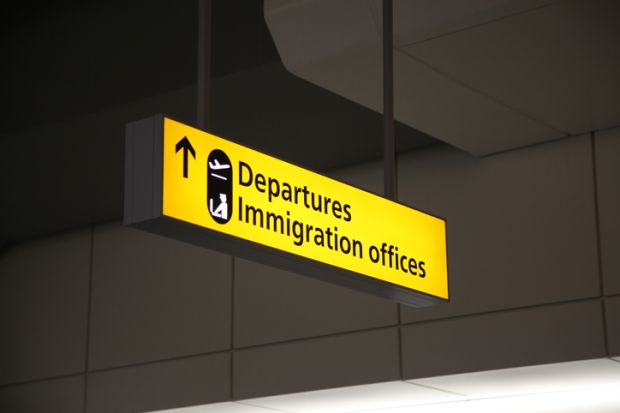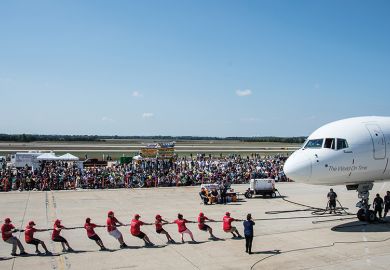Visa costs that are among the most expensive in the world could hamper efforts to attract researchers to the UK, vice-chancellors have warned the Home Office.
Fees of nearly £16,000 for a researcher, their partner and two children to relocate to the country are prohibitive and may force people to take their expertise elsewhere, according to a report published by Universities UK on 16 May.
The body has called for changes to the system or warned that the government’s target of investing 2.4 per cent of gross domestic product in research and development by 2027 – estimated to require 150,000 additional researchers and technicians – will be at risk.
Its report highlights other barriers to attracting and retaining international staff for the UK, including the requirement to pay an upfront immigration health surcharge of £624 per year, which has led to some researchers requesting shorter contracts to reduce the amount they have to pay on arrival.
A lack of job security in the sector is also off-putting, particularly for those early in their career who feel anxious about what happens if a fixed-term post comes to an end, the report says.
There have also been difficulties when researchers want to move institutions, with some being required to reapply for visas, incurring more fees and bureaucracy.
UUK has handed its report to the Home Office and called on ministers to go further than recent immigration reforms.
Vivienne Stern, director of Universities UK International, welcomed schemes such as the global talent visa – which has speeded up entry for scientists and academics – but said more needs to be done.
“Simple steps to ease the financial and bureaucratic burden for applicants could make a massive difference to individual decision-making, and help make the UK a magnet for talent,” she said.
UUK’s report highlights several extra steps the government could take to make the country more attractive to overseas researchers, including reviewing visa costs to ensure they are in line with those of other countries, spreading out the cost of health surcharges over the lifetime of the visa and allowing visa fees already paid to be transferred if applicants move jobs.
Other issues affecting the ability of researchers with families to bring across their dependents also need to be looked at, according to UUK.
These include the difficulties single parents have faced when bringing over a child under the age of 18 because of the “sole responsibility test”, which can be difficult to prove if the parents are divorced or wish to live in separate countries for work reasons.
Researchers who have a global talent visa can also apply for indefinite leave to remain after three years, but their dependents don’t qualify until after five years, which UUK says could put some off staying long-term.
Register to continue
Why register?
- Registration is free and only takes a moment
- Once registered, you can read 3 articles a month
- Sign up for our newsletter
Subscribe
Or subscribe for unlimited access to:
- Unlimited access to news, views, insights & reviews
- Digital editions
- Digital access to THE’s university and college rankings analysis
Already registered or a current subscriber?








